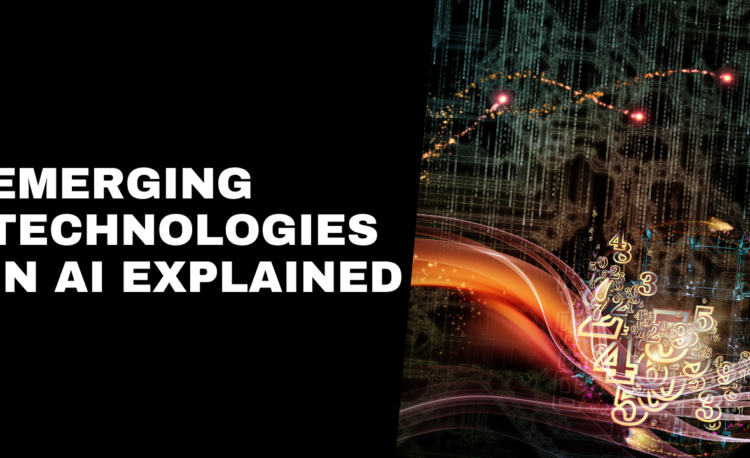The field of Artificial Intelligence (AI) is ever-evolving, with emerging technologies continually reshaping its landscape. This article delves into four pivotal areas: Quantum Computing and AI, Edge AI and the Internet of Things (IoT), AI and Blockchain, and Future Directions in AI Research. Let’s explore how these technologies are set to revolutionize AI.
Quantum Computing and AI
Quantum computing is poised to revolutionize AI by providing unprecedented computational power. Unlike classical computers, which use bits to process information, quantum computers use quantum bits or qubits. These qubits can exist in multiple states simultaneously, enabling quantum computers to solve complex problems much faster than their classical counterparts.
Applications of Quantum Computing in AI:
- Optimization Problems: Quantum computing can solve optimization problems more efficiently. For instance, it can improve route optimization for logistics companies or optimize complex financial portfolios.
- Machine Learning: Quantum algorithms can enhance machine learning models, enabling faster training times and more accurate predictions.
- Cryptography: Quantum computing can break traditional cryptographic methods, necessitating the development of quantum-resistant algorithms.
Challenges and Future Prospects:
While the potential is immense, quantum computing is still in its nascent stages. Challenges include maintaining qubit stability (quantum coherence) and error correction. However, advancements in quantum hardware and algorithms are paving the way for practical applications in AI.
Edge AI and IoT
Edge AI refers to the deployment of AI algorithms on edge devices, such as smartphones, sensors, and IoT devices, rather than relying on centralized cloud servers. This approach offers several advantages:
- Low Latency: By processing data locally, Edge AI reduces latency, enabling real-time decision-making crucial for applications like autonomous vehicles and industrial automation.
- Bandwidth Efficiency: Edge AI minimizes the need to transfer large volumes of data to the cloud, saving bandwidth and reducing costs.
- Privacy and Security: Processing data locally enhances privacy and security, as sensitive information does not need to be transmitted over the internet.
Applications of Edge AI in IoT:
- Smart Cities: Edge AI can manage traffic systems, optimize energy usage, and enhance public safety through real-time data analysis.
- Healthcare: Wearable devices with Edge AI can monitor patients’ health in real-time and provide immediate feedback.
- Industrial IoT: Edge AI enables predictive maintenance, improving operational efficiency and reducing downtime in manufacturing.
AI and Blockchain
The convergence of AI and blockchain technology holds transformative potential. Blockchain, a decentralized and immutable ledger, can address several challenges in AI development and deployment:
- Data Integrity: Blockchain ensures the integrity and provenance of data used to train AI models, reducing the risk of data tampering and enhancing trust in AI outputs.
- Decentralization: Decentralized AI applications can operate without central authority, promoting transparency and reducing the risk of single points of failure.
- Security and Privacy: Blockchain can provide secure data sharing frameworks, enabling privacy-preserving AI applications.
Applications of AI and Blockchain:
- Supply Chain Management: Blockchain can track the provenance of goods, while AI can optimize supply chain operations.
- Healthcare: Blockchain ensures the secure sharing of medical records, and AI can analyze this data for better diagnosis and treatment.
- Finance: AI algorithms can analyze transaction data on blockchain for fraud detection and risk assessment.
Future Directions in AI Research
AI research is advancing at an unprecedented pace, with several key areas promising significant breakthroughs:
- General AI: While current AI systems are task-specific (narrow AI), research is ongoing to develop General AI that can perform any intellectual task that a human can. This involves creating more flexible and adaptable AI systems.
- Explainable AI (XAI): As AI systems become more complex, understanding their decision-making processes is crucial. XAI aims to make AI models transparent and interpretable, enhancing trust and accountability.
- AI Ethics and Bias: Ensuring AI systems are ethical and unbiased is a major focus. Researchers are developing methods to detect and mitigate biases in AI algorithms, promoting fairness and inclusivity.
- Human-AI Collaboration: Future AI systems will increasingly augment human capabilities rather than replace them. Research is focused on creating collaborative AI systems that work seamlessly with humans.
- AI in Climate Change: AI is being leveraged to tackle climate change by optimizing energy usage, improving climate models, and monitoring environmental changes.
Challenges and Considerations:
The rapid advancement of AI technologies brings several challenges. These include ensuring data privacy, addressing ethical concerns, and managing the societal impact of AI. Policymakers, researchers, and industry leaders must work together to create frameworks that promote the responsible development and deployment of AI.
Conclusion
The convergence of emerging technologies such as quantum computing, Edge AI, blockchain, and the ongoing advancements in AI research are set to transform the field of Artificial Intelligence. These technologies not only enhance the capabilities of AI but also address some of the fundamental challenges in its deployment.
As we move forward, the integration of these technologies will play a crucial role in shaping the future of AI. By staying informed about these trends and advancements, we can harness the power of AI to drive innovation and solve some of the world’s most pressing challenges.
Whether you are a researcher, developer, or enthusiast, the future of AI holds exciting possibilities. Embrace these emerging technologies, and contribute to the next wave of AI innovations.

